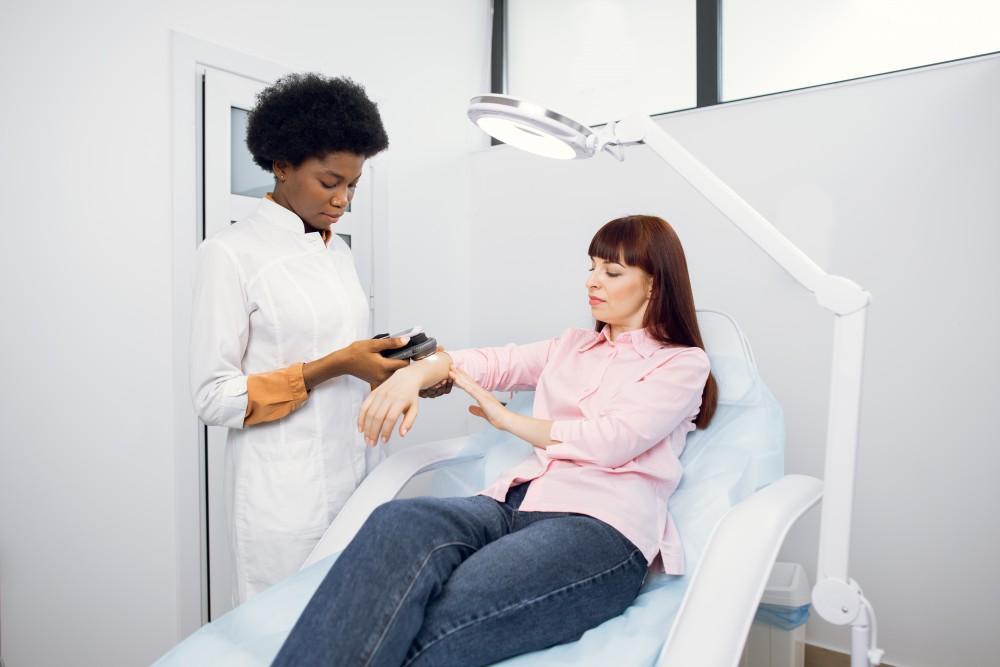Your skin can act as the body’s first line of defense against environmental threats, providing a protective barrier that interacts with the environment daily. Routine visits to a dermatologist help identify issues early, allowing for timely attention and monitoring of changes over time. By combining professional evaluation with personalized guidance, skin examinations help support proactive care and offer reassurance about overall skin health. Here are a few things to know about the role of regular dermatology check-ups for healthy skin:
Skin Assessment
A dermatologist can use specialized training to assess skin health and identify conditions that may not be immediately visible to the untrained eye. Full-body examinations enable a careful and detailed review of moles, spots, and overall skin texture, noting any subtle changes. Visual records created during visits help track changes over time, support ongoing monitoring, and provide a reference for future evaluations and treatment planning.
Patients often travel significant distances to receive thorough dermatological care from experienced providers. Regular visits can allow for consistent evaluations, early identification of potential concerns, and timely guidance on managing any emerging issues. This ongoing attention helps guide treatment decisions, supports overall skin health, and provides reassurance about skin condition over time.
Examination Process
Professional skin examinations follow a systematic approach, with dermatologists reviewing the entire body carefully. They assess existing moles and spots while checking for new growths that might need attention or further testing. The process typically takes 15 to 30 minutes, depending on skin condition, personal history, and any previous concerns noted. Many patients report feeling relief, reassurance, and increased confidence in their skin health after these thorough evaluations.
Conditions and Treatments
Modern dermatology helps to provide a range of treatment options for various skin concerns. Chemical peels improve skin texture and address sun damage, while dermal fillers and neuromodulators such as Botox target wrinkles and skin laxity. Treatments also include Asclera sclerotherapy injections for spider veins and platelet-rich plasma therapies for skin rejuvenation. Minor surgical procedures remove precancerous or cancerous growths, often with minimal scarring.
Dermatologists diagnose and manage common skin conditions affecting people of all ages. Eczema causes red, itchy patches, and psoriasis results in thick, scaly areas that may be uncomfortable. Acne affects many adults, and professional treatment offers options beyond over-the-counter products. Key services include:
- Chemical peels for texture and sun damage
- Dermal fillers and Botox for wrinkles and laxity
- Asclera sclerotherapy for spider veins
- Platelet-rich plasma treatments for skin rejuvenation
- Minor surgical procedures for lesion removal
- Diagnosis and management of eczema, psoriasis, and acne
- Skin cancer detection, biopsies, and treatment
Schedule Your Dermatology Check-Up
Finding a dermatologist who listens carefully and explains conditions clearly contributes to a better care experience. Providers with expertise addressing specific concerns, such as skin cancer monitoring or cosmetic procedures, may better meet individual needs. The quality of support staff also influences the overall experience, as professional, knowledgeable teams help patients feel comfortable during treatments. Take time to research providers and staff to make an informed choice for your skin care needs.


